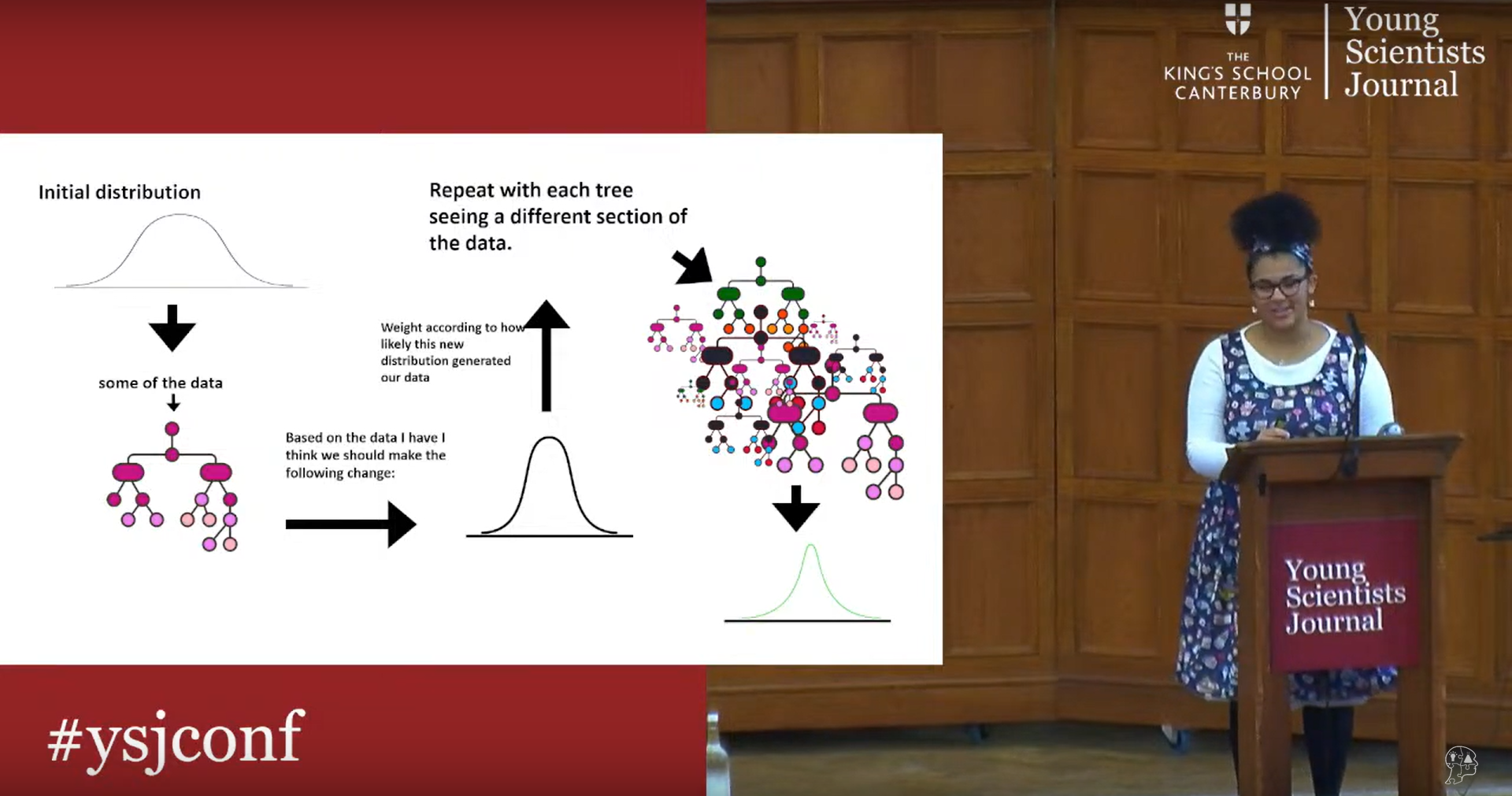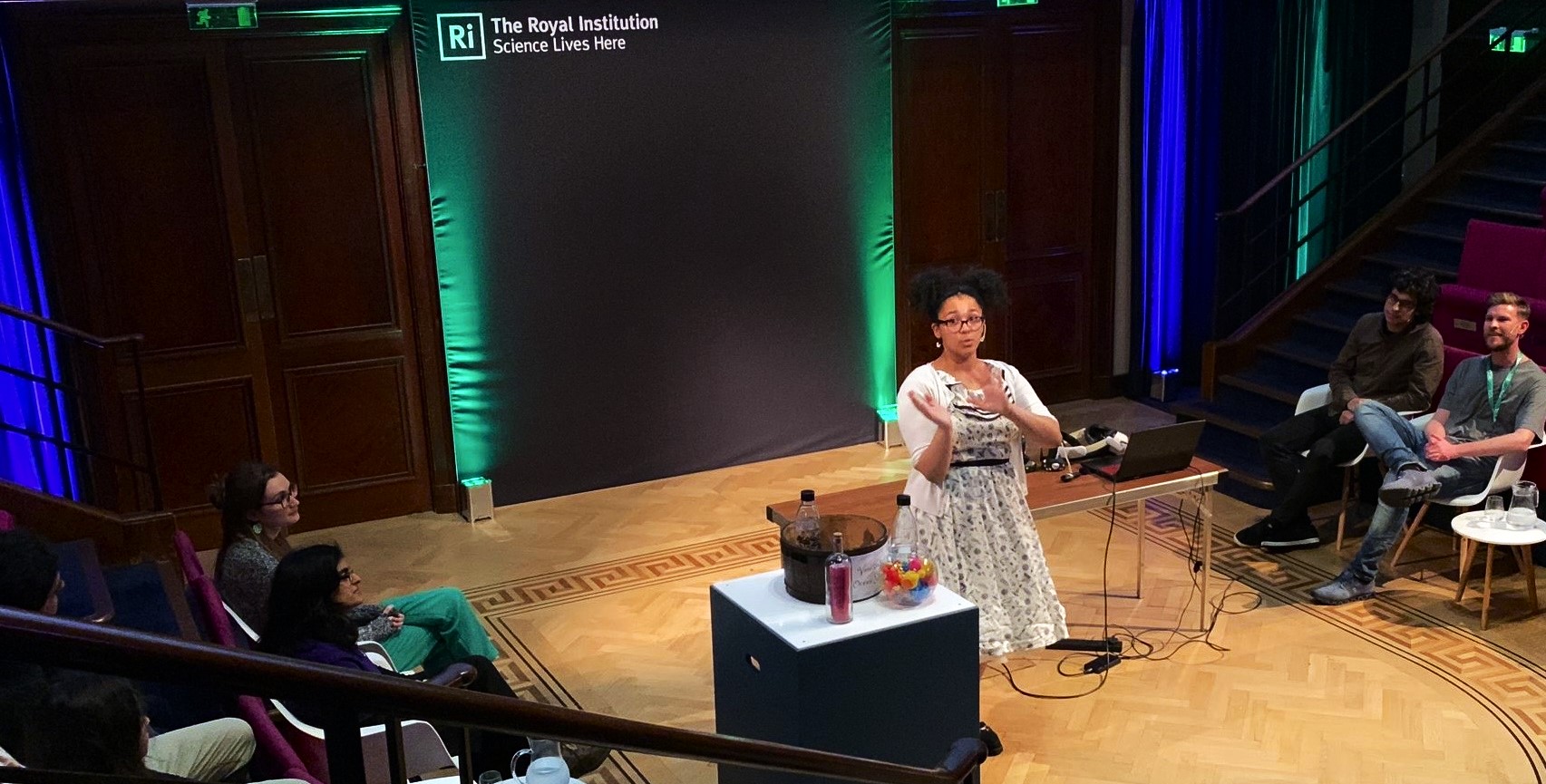Science Communication
- Science is my Wonderland 1 and Mathematics makes it tick
- Maths makes me excited, science gets me giddy and I love a good story, the curiouser2 1, the better.
The result? I get really excited and giddy and then tell curious stories! What are these curious stories? Why, the best way to explain it is to do it 1.
Whimsical and Scientifical Short Talks
Think of these as tasters for what I hope to be longer projects in the future (interested? email me!)
Wisdom From Wonderland:
- How Rubber Ducks Taught Us About the North Pacific
- How Do We Know Humans Are Causing Climate Change?
- Really Short Talks
- Why Do We Need to Prove 1+1=2?
Longer More Curious Stories (Lectures)
- Rubber Ducks, Oceans, and Ridiculous Hypotheticals About Jam Tarts. Young Scientists Journal Conference 2024. The King’s School Canterbury

- Go With The Flow: Introduction to Fluid Dynamics Session (Sutton Trust Summer School)
- Audience: Year 12 students
- Meet an Oceanographically-Enabled Mathematical Statistician: (Imperial College Outreach)
- Audience: Year 12 students
Presenter Clips
You know what would be cool? Being a science presenter on CBBC (interested? email me!). Here are some miscellaneous clips of me in (slightly unserious) Presenter Mode:
Science Nursery Rhymes and Other Poetry
I did this for the first time to prove a point to a friend, namely that it’s possible to take any scientific topic and make it engaging, accessible and appropriate for any audience; now I do its rather fun:
- Nursery Rhymes for Curious Minds: Lessons in Bayesian Statistics
- This article is the precurser to the Wisdom from Wonderland Talk Series 1
- The Universe, in Rhyme and Verse: When a Star Gets Old
Science Art
I find it interesting when people assert that you’re either a maths person or an english person, or a science person or an arts person. Say it with me, 1… 2… 3… FALSE DICHOTOMY.
Communicating science through art tells allows you to tell stories with more depth than with words alone.
- The Making of a Modeller
- Challenger Marine Society Art and Photography Competition 2024 (First Runner-up).
- Huxley Building Foyer Windows, Imperial College London
- Across seven consecutive windows: mathematics’ history from 2700 BC until the present day.3

Doing a PhD and Science Communication? Why so much effort?
Perspective matters. From where I’m standing, Maths is one of the closest things we have to magic, but many people will never see that. After all, how does one find wonder in maths when all they are ever presented with are problems; not for the fun of solving them, but as the gatekeepers between them and the future they want?
You know that situation where you spot something fascinating in the sky or out of a window, but the person standing next to you just can’t see it? What do you do? Well, usually, you step to the side and let the other person stand where you were and then guide them to what you saw… See where I’m going with this?
From where I’m standing, Maths is one of the closest things we have to magic, so by doing talks, and writing, and sharing, I step to the side and let people stand in my spot, but I don’t stop there. I guide them to what I saw; which rocks to turn over and which rabbit holes to go down. Then hopefully, when its time to step back into their real lives, they take some of the mathematical magic they found with them . If I can do that, then the effort is infinitely worth it.
